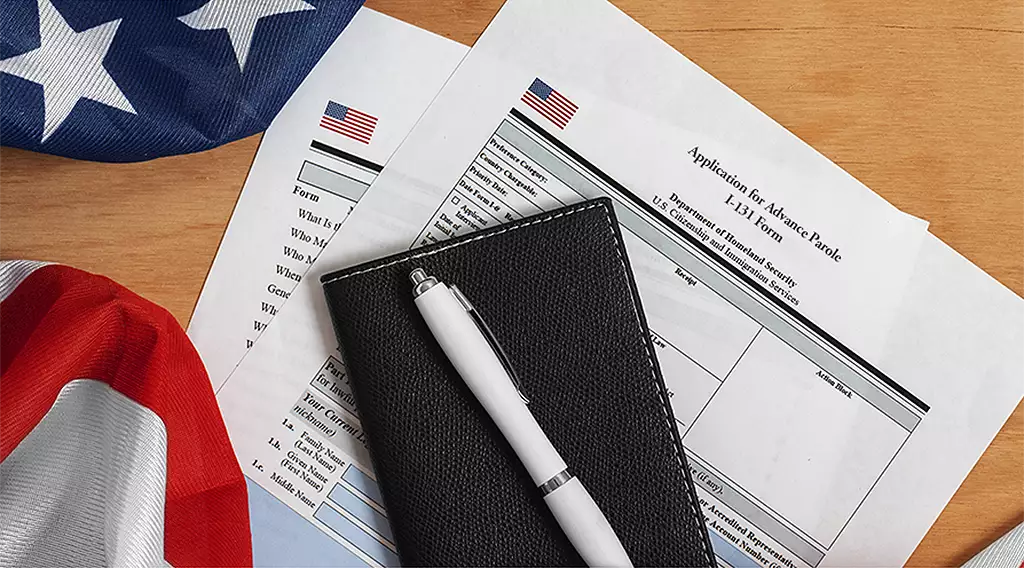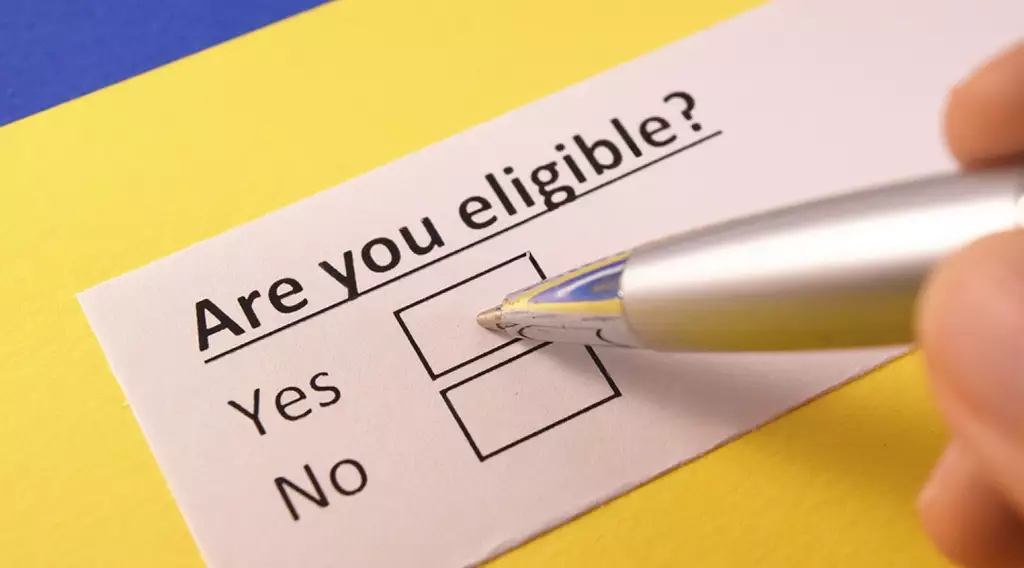K1 Advance Parole
What is K1 Advance Parole?
The K-1 fiancé(e) visa is a single-entry visa. This means if you leave the US without proper authorization, you will need to apply for a new visa to re-enter the country.
If you need to travel while on a K1 visa or while awaiting approval of your green card application, you can apply for Advance Parole. Advance Parole (AP) is a travel authorization document issued by US Citizenship and Immigration Services (USCIS) to eligible non-citizens. It allows you to travel temporarily outside the United States and return lawfully on a K-1 visa.
Obtaining AP is particularly important if you have a pending application for Adjustment of Status, or green card application. Leaving the country without AP while such an application is in process can lead to its abandonment and you would need to re-start the green card process.

How to Apply for Advance Parole
You can apply for AP concurrently with your Adjustment of Status (AOS), or green card application. This requires a Form I-131, Application for Travel Document, a copy of your passport, two recent passport-style photographs, and the 630 USD filing fee. You will also need:
- A USCIS-issued document showing your status in the US
- A secondary form of identification like a driver's license or birth certificate
- Your marriage certificate (if applying for Advance Parole based on a pending AOS application)
- An explanation of your reasons for traveling and supporting evidence
Travel Restrictions While Waiting for AP
As a K-1 holder, you should not leave the United States until you have received an AP travel document. Once you have this document, you can exit and re-enter the US (provided you adhere to all visa conditions). However, you must re-enter the country before your AP document expires.
Processing Time and Renewal of an Advance Parole Document
While the average processing time for an AP application is around 3 to 6 months, some cases may take up to 9 months or a year. If your green card hasn't arrived by the time your AP document expires, you can file a renewal application (Form I-131) as early as 120 days before the current document expires. To avoid any gaps in travel authorization, it's important to submit a renewal application well in advance. Processing times and filing fees for renewals are the same as initial applications.
Traveling with Advance Parole
The Advance Parole document is issued on a standard letter-sized sheet called a Form I-512L, Authorization for Parole of an Alien into the United States. The document is normally valid for one year. However, it is recommended to limit your travel outside the US on AP to less than 90 days at a time.
If you apply for both Advance Parole and an Employment Authorization Document (EAD) simultaneously, you may receive a combined EAD card that states it additionally "Serves as I-131 Advanced Parole," meaning the card serves a dual purpose as both work and travel authorization.
It's important to carefully examine your Advance Parole document upon receipt from USCIS to ensure all information is accurate. The document will also specify the latest permissible date for re-entry into the US. It's important to complete all travel and return to the US before this expiry date and take the document along on any international trips.
When traveling abroad on AP, green card applicants and K-1 visa holders must remember the following:
- Bring your original Advance Parole document issued by USCIS
- Bring your most recent Form I-797C Notice of Action
- Return to the US before the expiration of the AP document, leaving extra time for flight delays and unexpected travel issues

Returning to the United States with an AP Document
Advance Parole does not confer permanent resident status nor does it guarantee automatic re-entry to the US. Upon arrival as a green card applicant, you are classified as an "arriving alien" subject to standard immigration inspection. Secondary inspection is common for Advance Parole holders, but it's usually a verification process for your pending green card application. If you have reason to believe you could be denied entry at the border, you should carefully consider your need to travel abroad before your green card is approved.
Emergency Request for an Advance Parole Document
In some cases, USCIS can expedite your Advance Parole application, reducing processing times to around 30 days. To demonstrate an urgent need for a travel document, you need to show USCIS you have one of the following:
- A serious financial loss impacting you or your company
- An emergency like death or illness of a relative
- A valid humanitarian reason for travel
- Affiliation with a non-profit requesting expedited processing for cultural or social benefits to the US
- A request from the Department of Defense or another U.S. government agency promoting the national interest.
- An administrative error made by USCIS that requires faster processing
- Another compelling reason USCIS deems worthy of expediting
Reminder: Emergency AP is granted at the immigration officer's discretion.
If you have an urgent need for AP approval, you can make an appointment with your local USCIS office. You must bring a completed I-131, two passport-style photos, and evidence of grounds to expedite processing. Evidence might include medical records, a doctor's letter, or a death certificate. There is no additional fee to apply for an emergency travel document.

Eligibility for Advance Parole
US Citizenship and Immigration Services (USCIS) assesses eligibility on a case-by-case basis. Generally, you may apply for Advance Parole if you are in the US on a K-1 visa and have a pending Form I-485, Application to Register Permanent Residence or Adjust Status.
Ineligibility for Advance Parole
USCIS restricts Advance Parole eligibility for the following reasons:
- Unlawful Presence: You reside in the US without valid immigration status having made multiple unlawful entries.
- Valid Travel Documents: You already possess a valid re-entry permit or refugee travel document.
- J Visas and Foreign Residence Requirements: You hold a J visa (exchange visitor) or another visa with a mandatory foreign residence requirement.
- Private Immigration Bills: You are the beneficiary of a private immigration bill passed by Congress.
- Removal Proceedings: You are currently undergoing removal proceedings (deportation).
Unlawful presence may not automatically disqualify you. However, even if USCIS grants Advance Parole, the Department of Homeland Security (DHS) may still bar your re-entry to the US.

Advance Parole Frequently Asked Questions (FAQs)
What is Advance Parole (AP)?
Advance Parole is a document that serves as authorization to re-enter the United States. This document is essential for travel if you have a pending application for permanent residence (AKA a green card application).
You are advised to apply for AP concurrently with your initial green card application even if you don't have any current travel plans. This ensures you can travel without jeopardizing your application status should an urgent need arise.
What is a Form-131?
Form I-131, Application for Travel Document is the form used to apply for one of several types of travel documents, such as a re-entry permit, refugee travel document, Temporary Protected Status travel authorization document, and most importantly, for obtaining Advance Parole.
Can I leave the US while my green card application is pending?
If you leave the US without an AP document while your green card application is being reviewed by USCIS, your application will be deemed abandoned and consequently denied. If you have a valid AP document, your can exit and re-enter the US while your permanent residency application is considered.
Can I leave the US after I've submitted my Advance Parole application?
No, you must wait to receive your physical travel document before leaving the US.
How do I know if I need a travel permit?
If you are residing in the United States with a pending Form I-485, Application to Register Permanent Residence or Adjust Status, you require a travel document for any international trips. Failure to obtain this document prior to travel may result in USCIS denying your green card application.
If you already have your green card, you can travel internationally with your passport and green card in hand. However, if you wish to remain outside the US for over a year (but less than two years), you may need a travel document to re-enter to the country.
You do not need to obtain Advance Parole if you are applying for an employment-based green card and are:
- A temporary worker on an H-1 visa
- An intra-company transfer employee on an L-1 visa
Does I need Advance Parole to visit friends and family in Thailand?
If you are on a K-1 visa or have a pending I-485 green card application, you need Advance Parole if you plan to re-enter the US after your trip. Otherwise, your visa and application will be deemed abandoned and you will have to re-start the green card application process.
Does Advance Parole guarantee entry to the United States?
No, Advance Parole does not guarantee entry into the United States. After arriving in the US, all foreign nationals must undergo inspection by a US Customs and Border Protection Officer who has the authority to permit or deny admission at their discretion.
Does the Advance Parole document allow me to work?
No, the Advance Parole document does not grant work authorization. When filing the Adjustment of Status application (and AP application), you can also apply for an Employment Authorization Document (EAD card) by filing a form I-765, Application for Employment Authorization. This allows you to work while you wait for your green card.
What happens if my AP expires while I'm outside the US?
If your Advance Parole document expires while you are outside the US, you might be denied re-entry and will likely need to re-start the green card application process. You should plan to return to the US before your AP expires.
Can my fiancé(e) and I travel internationally for our honeymoon?
You should not leave the country prior to obtaining an Advance Parole travel document.
Does my fiancé(e) need travel authorization to Puerto Rico or another US territory?
While honeymoon destinations like Guam, Puerto Rico, and the US Virgin Islands are US territories, you must exercise caution when traveling to these locations as a K-1 visa holder. USCIS regulations can be unclear in these scenarios. Traveling to a US territory without Advance Parole could be seen as abandoning your K-1 visa's purpose of entering the US for marriage. To ensure a smooth re-entry, it's strongly recommended that you wait for an AP document to travel outside the 50 US States.
Ready to start a new chapter of your life in the USA?
- Over 20 years of experience helping people from all over the world travel to the United States
- More than 10,000 successful US visa applications.

Speak with an expert US immigration lawyer, or submit the form below to begin the consultation process.

Ken Graham
US Immigration Attorney
Partner, Siam Legal International

Natdaphon Luengsawang
Senior US Visa Consultant
Siam Legal International
 CALL
CALL
- Call us today at (702) 799-9719
- From US: Sunday - Friday
- 5:00 PM - 7:00 AM (New York time)
- 2:00 PM - 4:00 AM (Los Angeles time)
- From Thailand: Monday - Friday
- 4:00 AM - 6:00 PM (Bangkok time)













